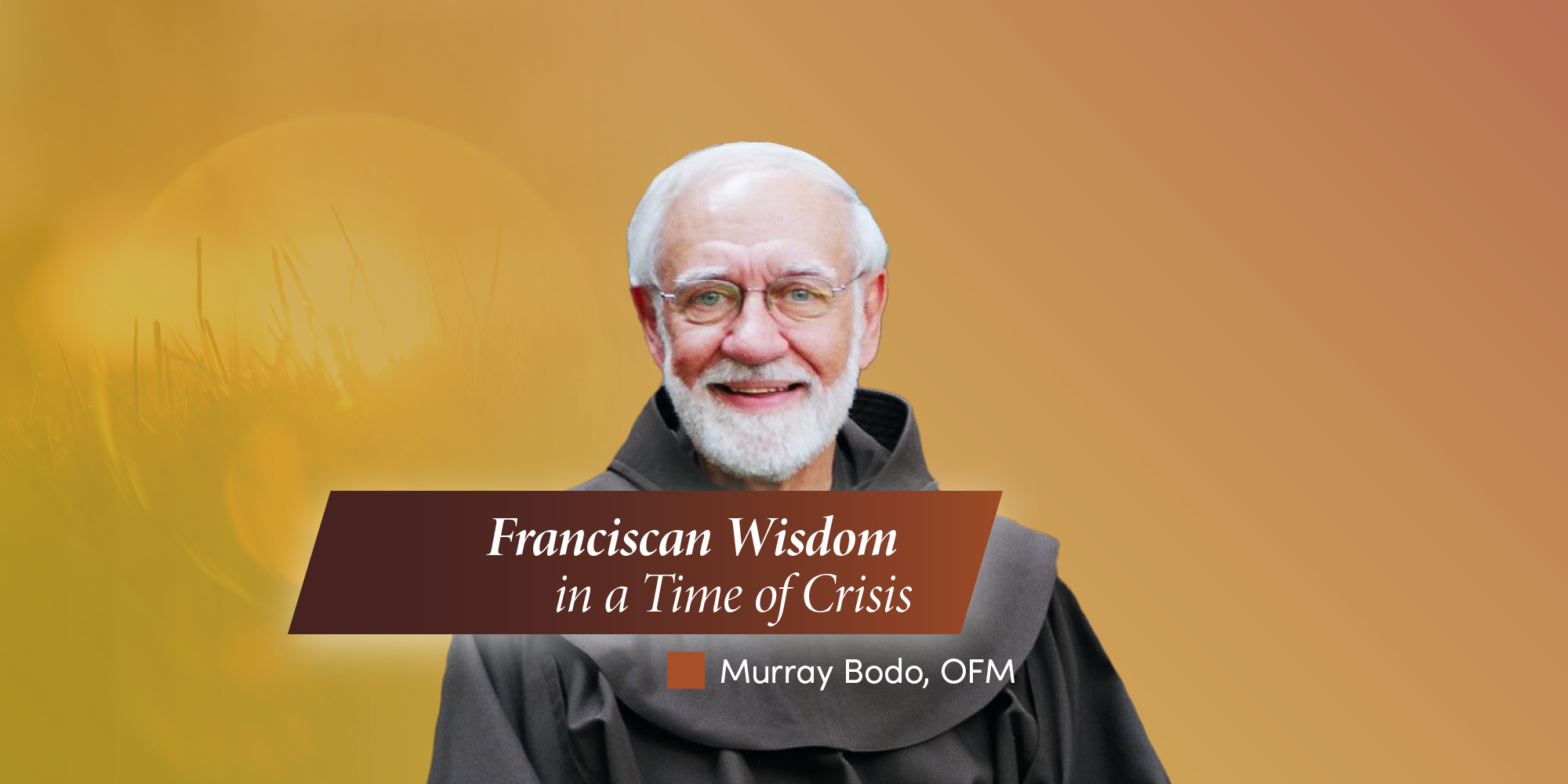Hope – Much More than a Franciscan Word
Author: Murray Bodo, OFM
Date Published: July 23, 2025
“Hope is the fundamental attitude that supports us on the journey. It does not consist of waiting with resignation, but of striving with zeal toward true life, which leads well beyond the narrow individual perimeter. As Pope Benedict XVI reminded us, hope “is linked to a lived union with a ‘people,’ and for each individual it can only be attained within this ‘we.’”
Pope Francis, “The End of the World? Crises, Responsibilities, Hopes”
This is precisely the time
When artists go to work.
There is no time for despair,
No place for self-pity,
No need for silence,
No room for fear.
We speak, we write,
We do language.
That’s how imagination heals.
~Toni Morrison
“Hope” is a very important Franciscan word that becomes so much more than a word when I begin to meditate on it—especially in a context like this so-called time of “polycrisis.” I quickly realize that I am helpless and alone without the “we” of what Pope Benedict calls “a people,” and what we Franciscans call a “fraternitas.”
Age, and playing with words for ages, has convinced me that THE gift of Franciscans for the world today is our own interrelating as brothers, our “fraternitas.” In our “fraternitas” we find our own identities defined and clarified and thereby find the hope that carries us on as well. And to the extent that we open that ever-expanding circle of “fraternitas” to others—and let them in, let them, too, experience a joyful place of hope—to that extent we jointly create what St. Francis called “fraternitas.” In “fraternitas,” there emerges a “we” that is defined and focused by those separate individuals who together are becoming a “we.”
St. Francis rejected other founders’ definitions of who we, as religious, become through the faithful keeping of the Rule. Instead, he embraced the descriptive definition God gave to him, and by extension to the brothers: that they were to become new kinds of fools in the world, wisdom figures who emerge strangely sane and full of hope as they open their arms to those who would join them in the mad dance of love--even in the midst of war, climate change, energy problems, epidemics, the migratory phenomenon, and technological innovation, all erupting simultaneously.
As God did with St. Francis and the lepers, God now asks us to open our arms and “work mercy” with one another and with those who would join us on our mad pilgrimage here on earth.
Fraternitas seems to happen when we begin to “work mercy with one another,” not when we have compassion or have pity, both attitudes dripping condescension and self-importance. Francis says instead that the Lord led him among lepers, “et feci misericordiam cum ipsis” (“and I made mercy with them”). He and the lepers were mutually working mercy with one another; it was a reciprocal gesture.
Fraternitas is a redeemed and redeeming interaction that shines like the sun of justice and calls others to want to be a part of that reciprocal relatedness. Call it hope or joy or re-birth. It unites and heals, and that is a big part of what we believe. We believe further that if we put this belief into practice, then new kinds of fools start healing the world. Hope is the witness that foolish wisdom is alive and well and living wherever making mercy is still happening.

